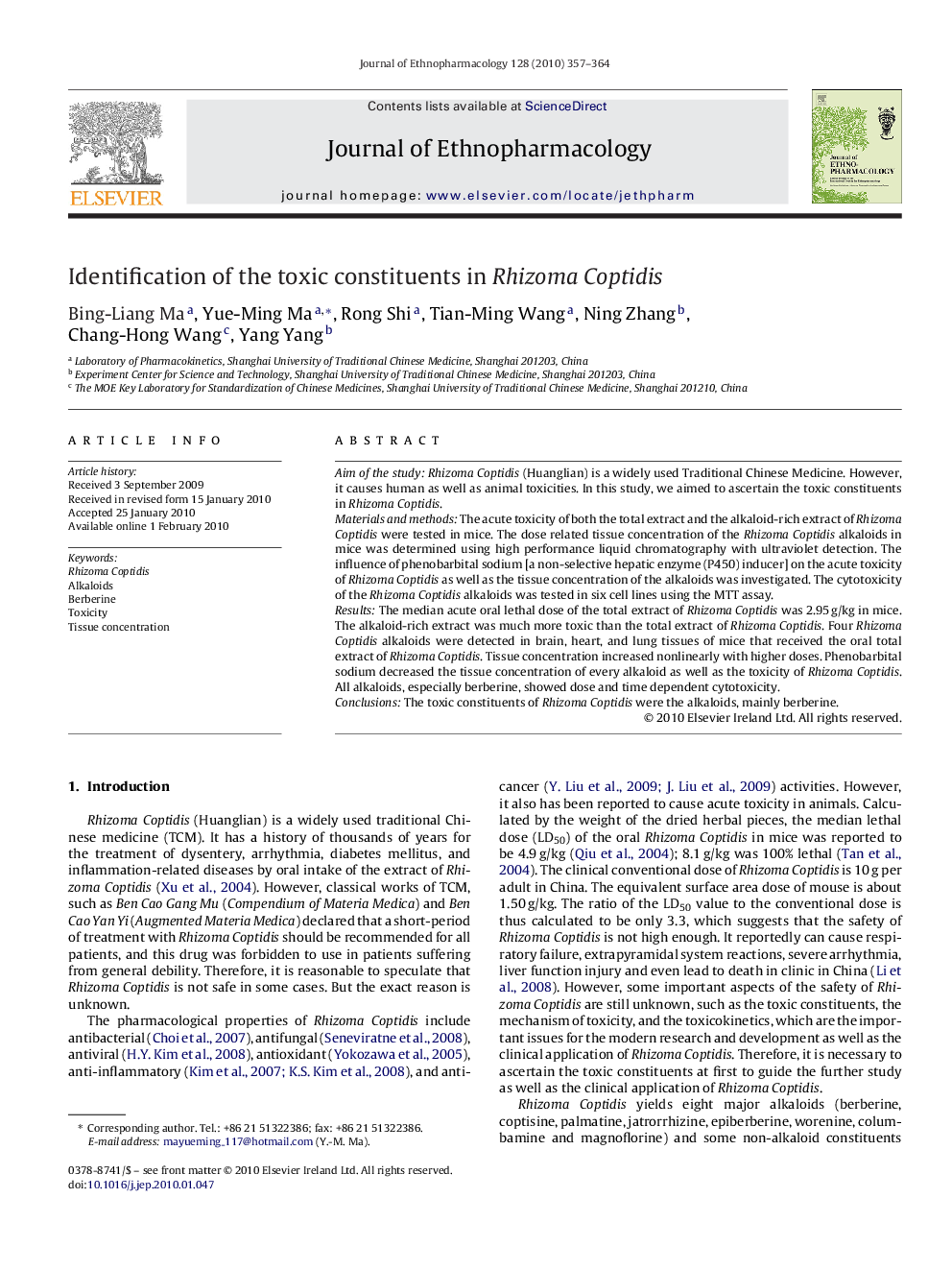| Article ID | Journal | Published Year | Pages | File Type |
|---|---|---|---|---|
| 2546167 | Journal of Ethnopharmacology | 2010 | 8 Pages |
Aim of the studyRhizoma Coptidis (Huanglian) is a widely used Traditional Chinese Medicine. However, it causes human as well as animal toxicities. In this study, we aimed to ascertain the toxic constituents in Rhizoma Coptidis.Materials and methodsThe acute toxicity of both the total extract and the alkaloid-rich extract of Rhizoma Coptidis were tested in mice. The dose related tissue concentration of the Rhizoma Coptidis alkaloids in mice was determined using high performance liquid chromatography with ultraviolet detection. The influence of phenobarbital sodium [a non-selective hepatic enzyme (P450) inducer] on the acute toxicity of Rhizoma Coptidis as well as the tissue concentration of the alkaloids was investigated. The cytotoxicity of the Rhizoma Coptidis alkaloids was tested in six cell lines using the MTT assay.ResultsThe median acute oral lethal dose of the total extract of Rhizoma Coptidis was 2.95 g/kg in mice. The alkaloid-rich extract was much more toxic than the total extract of Rhizoma Coptidis. Four Rhizoma Coptidis alkaloids were detected in brain, heart, and lung tissues of mice that received the oral total extract of Rhizoma Coptidis. Tissue concentration increased nonlinearly with higher doses. Phenobarbital sodium decreased the tissue concentration of every alkaloid as well as the toxicity of Rhizoma Coptidis. All alkaloids, especially berberine, showed dose and time dependent cytotoxicity.ConclusionsThe toxic constituents of Rhizoma Coptidis were the alkaloids, mainly berberine.
Graphical abstractRhizoma Coptidis (Huanglian) is a widely used Traditional Chinese Medicine. However, it causes human as well as animal toxicities. In this study, the results of both in vivo and in vitro experiments showed that the toxic constituents in Rhizoma Coptidis were the alkaloids, mainly berberine.Figure optionsDownload full-size imageDownload as PowerPoint slide
